China cracks down on speculative trading in limited edition shoes, but ‘sneakerheads’ continue to fuel phenomenon
China cracks down on speculative trading in limited edition shoes, but ‘sneakerheads’ continue to fuel phenomenon
- People’s Bank of China has said that speculative buying of limited edition trainers had become a problem and warned speculators against using more than a dozen online platforms
- Growing popularity of sneaker trading has seen Sneaker Con launch its first event in Shanghai and US-based marketplace GOAT launch a China-specific app
In May, Sneaker Con – a New York-founded event for sneakerheads to buy, sell, and trade their shoe collections, was held in China for the first time, attracting 20,000 people to the expo in Shanghai. Photo: YouTube
In April, David Zuo’s students told him about the latest money making craze sweeping across China: reselling limited edition athletic shoes. Since then the 34-year-old Zhejiang sports teacher has made about 100,000 yuan (US$14,320) trading rare trainers online such as Nike Air Jordan’s and Adidas Yeezy’s.
The growth of digital platforms, fuelled by a nation with growing disposable income and a deep love for basketball, has created a buying frenzy in a secondary market of trading shoes much like stocks.
China’s central bank is now trying to douse the latest speculative fire among “sneakerheads”, which could grow into a multibillion dollar industry.
“With a growing middle class, purchasing power keeps increasing and people would chase for limited editions,” said Kenny Wen, wealth management strategist at Everbright Sun Hung Kai in Hong Kong.
“For them, it is a fashion and investment. As prices are surging significantly, people will choose to resell the shoes rather than wear them. Some even believe it is more exciting than buying stocks. This makes the sneaker resale market even more popular.”
Globally, the trainer resale business is set to be worth US$6 billion by 2025, according to New York-headquartered investment bank Cowen & Co, who labelled it “an emerging alternative asset class”.
China accounts for a sixth of that market, valued at over US$1 billion, according to Bloomberg who quoted Scott Cutler, chief executive of Detriot-based exchange platform StockX.
The high spending power of the country’s millennials’ comes despite China facing its worst economic growth in 27 years. While Beijing has been trying to stimulate the economy by promoting domestic consumption, its latest message draws the line at speculation.
On October 18, the Shanghai branch of the People’s Bank of China (PBOC) warned against using more than a dozen online platforms for speculative buying, in a statement headlined “Vigilance against the trend of ‘shoe speculation’ and prevention of financial risk”.
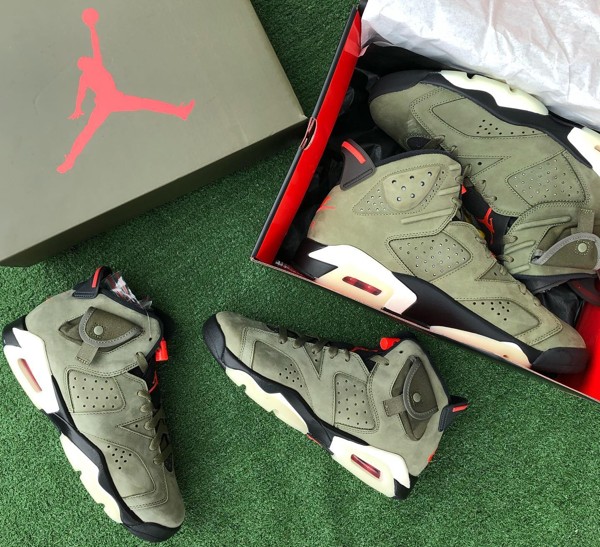
Travis Scott x Air Jordan 6. Photo: Facebook
Sites such as Nice, Dou Niu, Yoho! and Drop Store have large numbers of users, high transaction volumes and wide price fluctuations, said the PBOC, warning that reselling had become a problem.
Last month The Beijing News reported 40 people were defrauded more than 6 million yuan in a sneaker trading scam in August, after a man in Jiangsu province sold shoes through WeChat but did not deliver them.
“Yet, as many highlight it’s potential as a new and exciting alternative to stocks, to be able to consider shoe trading an investment asset there has to be a logic to be able to find entry value and forecast, or calculate when you are going to exit and for how much,” said Ren Yu, director of investor relations at CDH Investments, a Beijing-based alternative asset management group.
Yu said she does not understand how players can know their exit price, making it an uncertain market.
According to collectors, once shoes are checked by the platforms for authenticity their selling price is advertised at retail value. It’s rises is determined by sneaker enthusiasts’ willingness to bet against one another using top prices, dependent on the level of demand and supply, making the selling price swing.
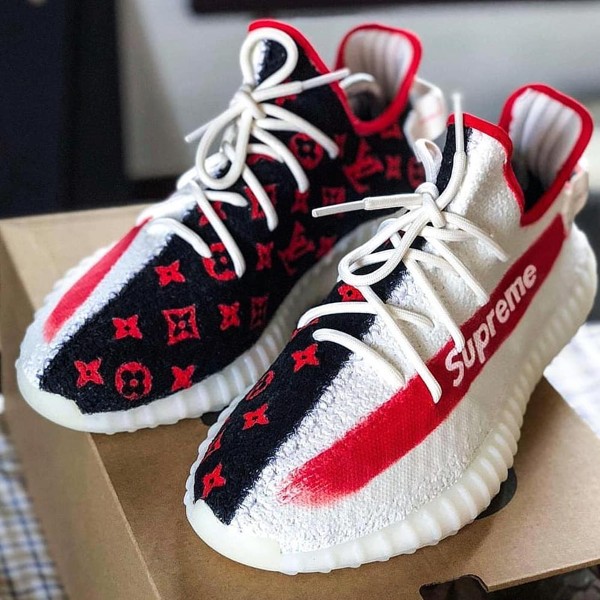
Adidas Yeezy Boost 350 | Supreme x LV. Photo: Facebook
On trading app Nice, Nike shoes designed in collaboration with US rapper Travis Scott have been highly sought after recently. A pair of Travis Scott x Air Jordan 6 “Medium Olive” fetched 7,770 yuan, 455 per cent more than its retail price of 1,399 yuan, while Travis Scott x Air Jordan 1 “Cactus Jack” sold for 13,155 yuan, more than nine times the original 1,299 yuan price.
Sneaker trader Tingting Wu, 26, said the market is growing and is here to stay.
“You can see how many young people there are in China and they are getting richer and richer. These people have money and they need to spend it,” Wu said.
Earlier this year Wu – who is studying in London – was working as a part-time sales assistant buying luxury items on behalf of clients in China, via WeChat, when they started asking her for limited edition trainers.
She tried and failed multiple times to buy pairs on release, like Adidas and Kanye West’s collaboration of Yeezy’s. To be successful, she said, you need to cultivate good relations with store managers who give information about releases in advance. She estimates more than 80 per cent of buyers like her were overseas Chinese because “we know there is a huge market”.
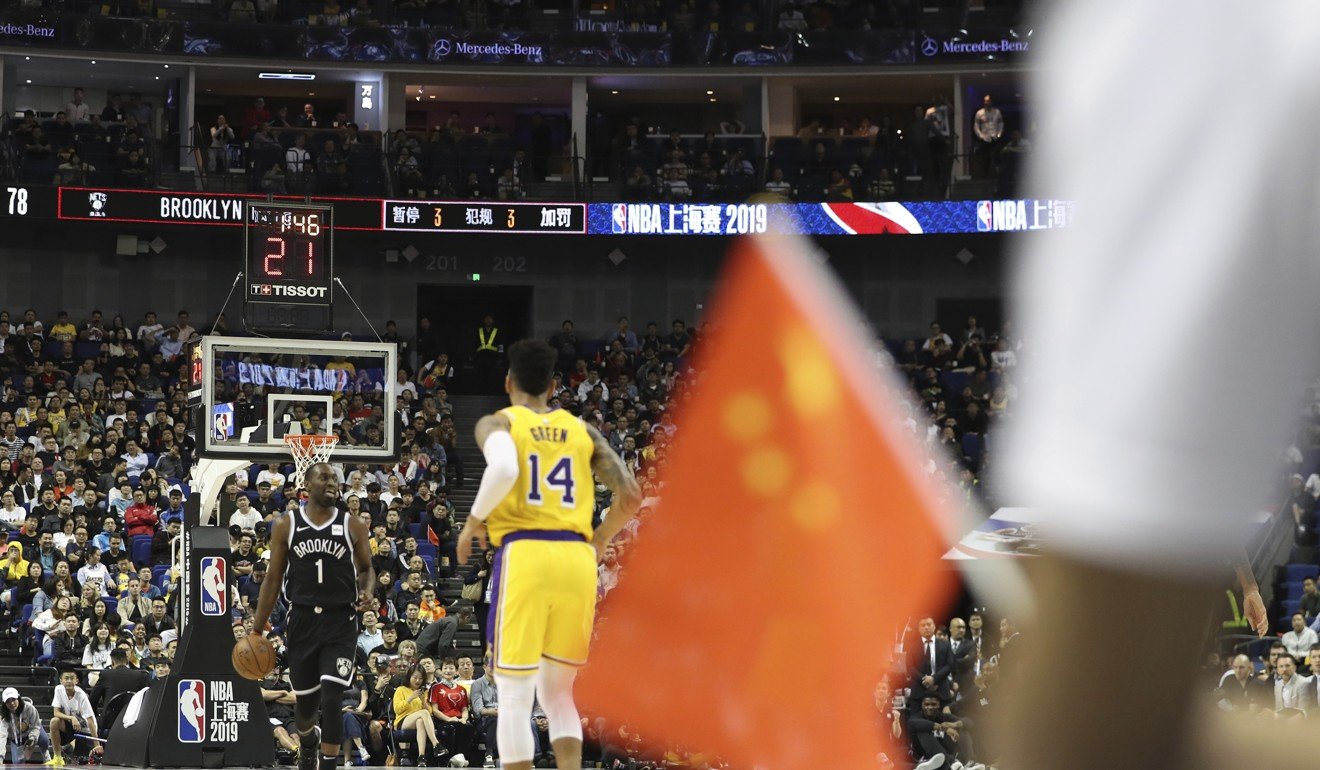
Brooklyn Nets play against Los Angeles Lakers in a preseason NBA game at the Mercedes-Benz Arena in Shanghai, on October 10. Photo: AP Photo
“As long as there is a market of people who want to wear the limited edition shoes, there will be a market in people wanting to invest in them,” said Wu. “Buy these shoes, store them for a while and sell them at a higher price.”
The growing popularity of sneaker trading in China drew Sneaker Con to the mainland. Founded in 2009 by sneaker enthusiasts in New York, it hosted its first event in Shanghai in May, attracting some 20,000 people.
Two months later, US-based marketplace for limited edition trainers, GOAT, announced the launch of a China-specific app, a WeChat Mini program, using US$100 million in funding from American footwear retailer Foot Locker to further penetrate its biggest international market.
This is a market that is, at least for now, based on foreign labels, according to traders. Domestic brands like Fujian giants Anta Sports and Xtep Holdings target more affordable, mass market products, making them less desirable to collectors, they said.
Xtep said in a statement to the Post its major focus was on product innovation and launching new items each season, and that reselling does not impact business. Anta and Li Ning did not respond.
The home-grown giants have, however, helped add fuel to the fire.
China’s love for basketball, which has spurred demand for athletic shoes, has led to an increasing number of domestic brands sponsoring NBA stars – like Klay Thompson endorsing Anta and Jeremy Lin pushing Xtep.
Traders says there is money to be made from limited edition trainers and that it is not a temporary phenomenon. As long as China gets wealthier, the speculative trend will only gather steam.
Additional reporting by Yujing Liu.



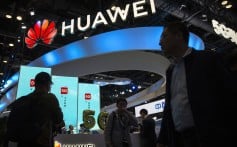
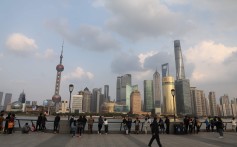







Comments